Test-optional, an admissions policy that does not require applicants to submit standardized test results, will be implemented by more than 1,900 US universities in 2024. However, in February 2024, two Ivy League schools (8 elite private universities in the US), Yale and Dartmouth, decided to stop applying this policy starting in 2025, meaning they will require SAT and ACT scores again. MIT, another top school in the US, also made the same move starting in the fall of 2023.
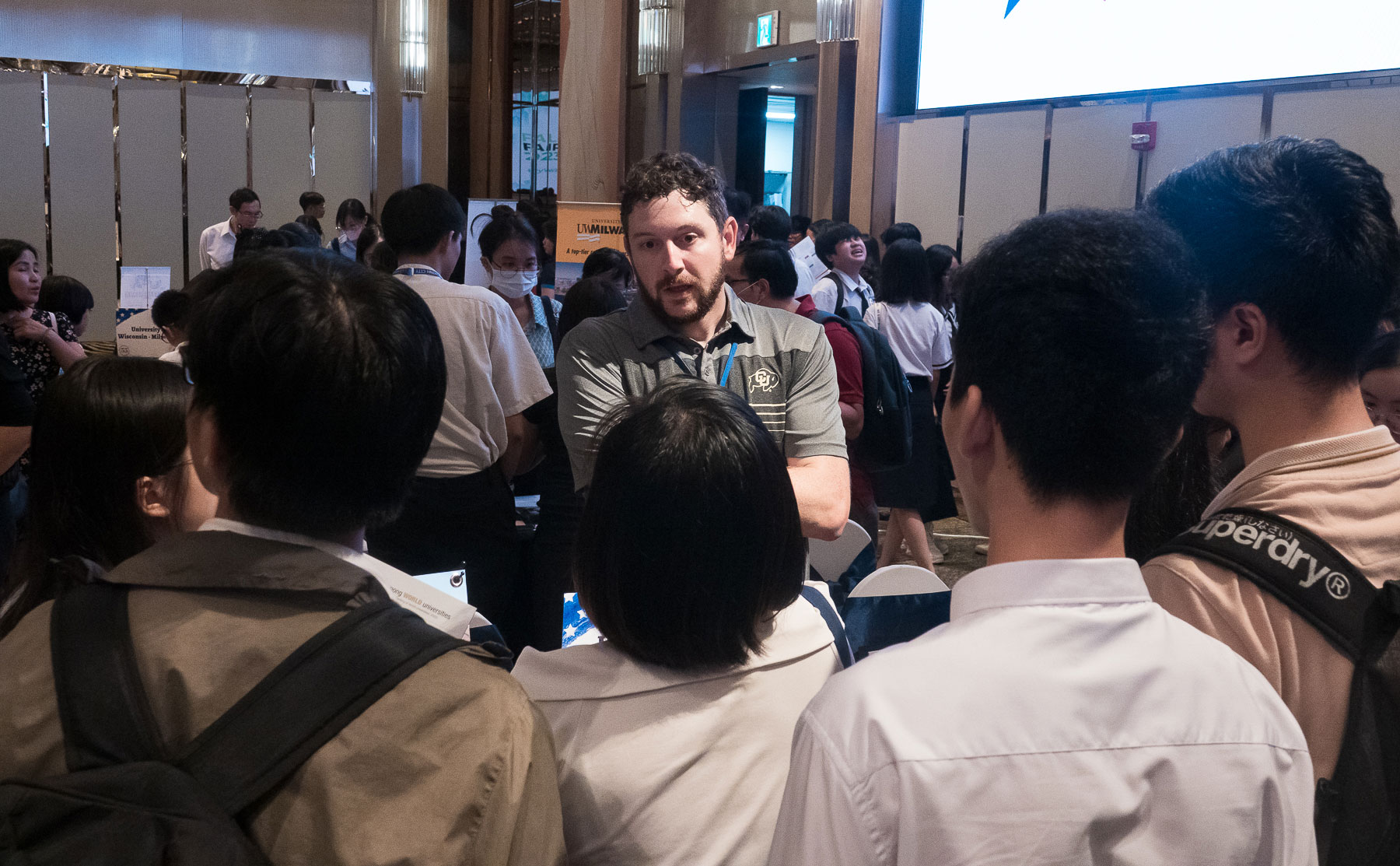
Students participate in the US University Education Fair held in early October 2023 in Ho Chi Minh City
TRANSPARENCY AND RAISING STANDARDS
Mr. Vu Thai An, Director of GLINT Study Abroad Company (HCMC), analyzed that the test-optional regulation flourished during the Covid-19 pandemic because at that time, centers were closed, and international students (DHS) encountered many difficulties when studying and taking exams. Although American universities said this move was only temporary, the non-mandatory submission of standardized test scores is still widely applied by many units to this day.
However, test-optional also has many limitations, Mr. An commented. First, many studies have shown that thanks to standardized tests, universities can more accurately predict the success rate of students before, during and after university, especially in the context of "inflation" of scores occurring in many places, even in the US. Second, not requiring standardized tests has caused schools to be entangled in rumors of admissions based on applicants' family background.
"In addition, many units in the US are selling service packages costing tens of thousands of dollars, creating creative documents, projects, activities... on behalf of DHS to "polish" the application. From the above issues, it can be seen that requiring the submission of standardized test scores again is a move for schools to demonstrate transparency and equality in admissions activities," Mr. An commented.
Tran Anh Khoa, a PhD student at Peking University (China) and a study abroad consultant at Miyork Education (HCMC), noted that top US universities require re-scores of standardized tests to find the most talented and hardworking candidates.
Ms. Dao Nhat Mai, General Director of NEEC Study Abroad Consulting Company (HCMC), agrees with this view. According to Ms. Mai, in the context of some top US universities falling in rank after boycotting the US News & World Report rankings, requiring SAT and ACT again is an affirmation that the school has its own principles, not a decline in quality.
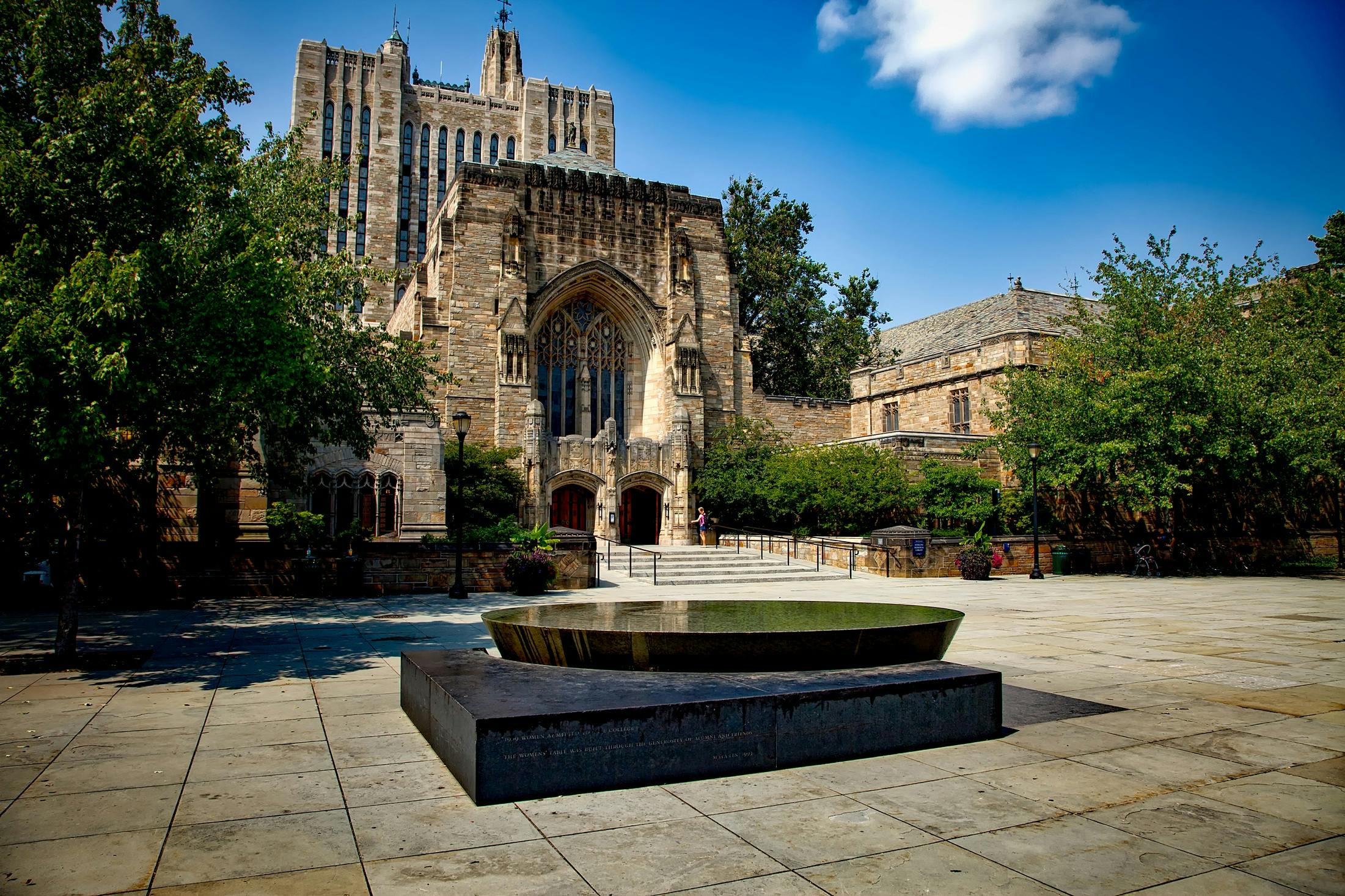
In February 2024, Yale University decided to require SAT and ACT again starting in 2025.
DIFFICULT TO SPREAD?
The fact that top US universities are starting to abandon test-optional raises the question: Will this trend continue and spread in the upcoming 2025 admissions season? Ms. Dinh My Phuong, admissions representative of the University of Rochester (USA), said that this scenario is unlikely to happen, because the University of Rochester and many other top US universities maintain the same admissions regulations as last year, which means no SAT or ACT required.
"Because we evaluate all elements of the application from academics, achievements, skills to extracurricular activities, standardized test scores are just one factor that helps increase the competitive rate. However, SAT is a mandatory criterion if DHS applies for scholarships or financial aid," Ms. Phuong informed, adding that each school has its own weight for the elements and the University of Rochester places the most importance on academic ability.
Regarding public schools, Ms. Le Thi Thu Trang, representative of admissions and marketing in Vietnam of Arkansas State University (USA), also acknowledged that the trend of requiring SAT and ACT scores may only be concentrated in top schools. Because in the context of some major study abroad countries such as Australia and Canada cutting the number of students, the US with about 5,000 colleges and universities has become an ideal destination and is expected to see an explosion in the number of applications.
"The schools with the most applications are definitely the top-ranked schools, but because of limited enrollment quotas, they will "tighten" the intake to ensure the quality of the review. On the other hand, if public schools want to change their enrollment regulations, they will have to wait a long time for approval from the provincial education department. This makes it difficult for us to be as flexible as private schools like the Ivy League," Ms. Trang commented.
Mr. Vu Thai An also predicted that the trend of requiring the return of SAT and ACT will mainly occur at top schools. Among them, other private schools outside the Ivy League such as Duke, Stanford or the California public university system have only announced to maintain test-optional or test-blind (not considering scores even when applicants attach them in their application - PV) until the fall of 2025.
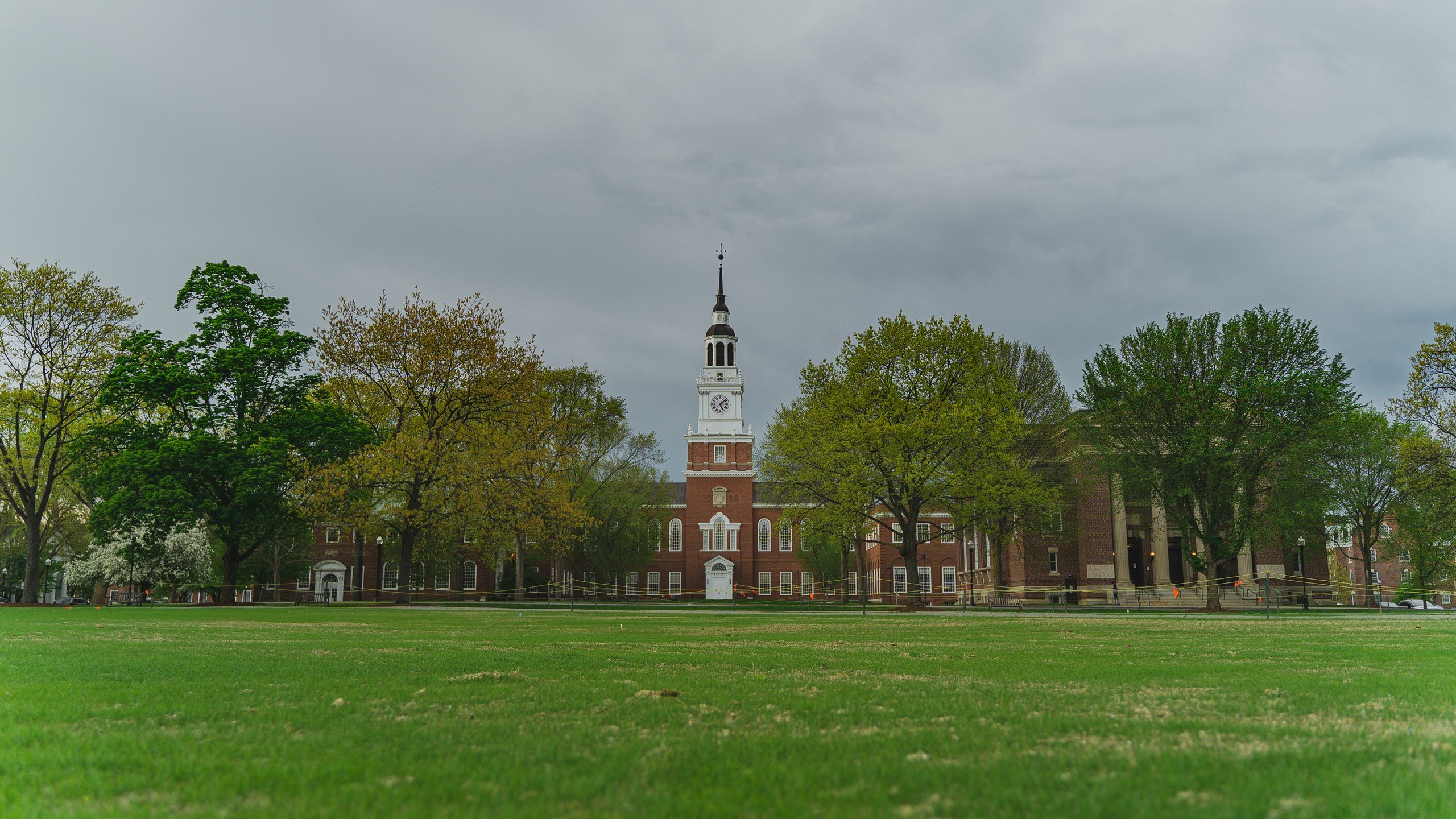
Previously, Dartmouth College also decided to stop applying test-optional, an admissions regulation that does not require applicants to submit standardized test results, starting in 2025.
OPPORTUNITIES FOR VIETNAMESE STUDENTS
In general, study abroad experts believe that the decision to re-apply standardized tests such as the SAT, ACT or even expand to other tests such as AP, IB, A-level will have little impact on the opportunities for Vietnamese people to study in the US. Because if aiming for top schools, students often prepare quite early, even from grade 7, with comprehensive factors including SAT and ACT review, according to Mr. Vu Thai An.
Similarly, Ms. Dao Nhat Mai said that the requirement of standardized test scores has been applied for a long time, and was only recently suspended. Therefore, the decision to reintroduce the SAT did not shock parents and students and was accepted by everyone.
However, it is important to note that the cost of formal exam preparation is extremely expensive in Vietnam, ranging from tens to hundreds of millions of dong, according to Mr. Tran Anh Khoa. This makes the dream of studying at a prestigious school in the US even more distant for students with difficult circumstances or weak finances. "Some of my students are considering other countries like Singapore," said Mr. Khoa.
On the other hand, according to Mr. Khoa, the fact that many schools are expanding their recognition of other exams such as AP, IB or A-level will increase the chances of students being admitted. Accordingly, some studies have shown that these exams predict academic success better than the SAT. "Not to mention, in addition to difficult vocabulary, the SAT or ACT also requires knowledge of American culture. Meanwhile, AP or IB requires candidates to take exams in math, physics, chemistry..., which are not only not subject to language barriers but also close to the curriculum in class," said Mr. Khoa.
Ms. Dinh My Phuong said that for top schools, requiring candidates to take internationally standardized tests means giving them the opportunity to prove themselves, "and this is an advantage." Because not all candidates study American curriculum, it will be very difficult for the admissions board to evaluate their abilities based solely on their grade point average from a non-American education.
New admission scores in 2025
According to Tran Anh Khoa, after the lawsuit related to Asian discrimination at Harvard University, a significant change in the 2024 admissions season is that schools will add a new essay, requiring a description of the two-way impact between the applicant and the environment and community where they live. This regulation is expected to continue in the coming years.
"So instead of doing too many extracurricular activities in other provinces, cities or other countries, candidates should start to learn about their community and what they can do to contribute to it. In addition, be honest about your background, whether you come from a poor family or an upper-class family, and use it to create your strengths in front of the admissions board," Mr. Khoa advised.
Ms. Le Thi Thu Trang noted that American schools are raising English standards to ensure that DHS can understand the lessons. For example, at Arkansas State University, 80% of Vietnamese DHS students who entered the school with an IELTS score of 5.5 had to apply to take intensive English classes, according to data from the academic department. "Therefore, from the fall semester of 2025, the school's English requirement will increase from 5.5 to 6.0 IELTS for undergraduates," Ms. Trang shared.
Source link





![[Photo] Prime Minister Pham Minh Chinh chairs the meeting of the Government Party Committee Standing Committee](https://vstatic.vietnam.vn/vietnam/resource/IMAGE/2025/8/23/8e94aa3d26424d1ab1528c3e4bbacc45)

![[Photo] General Secretary To Lam attends the 80th Anniversary of the Cultural Sector's Traditional Day](https://vstatic.vietnam.vn/vietnam/resource/IMAGE/2025/8/23/7a88e6b58502490aa153adf8f0eec2b2)



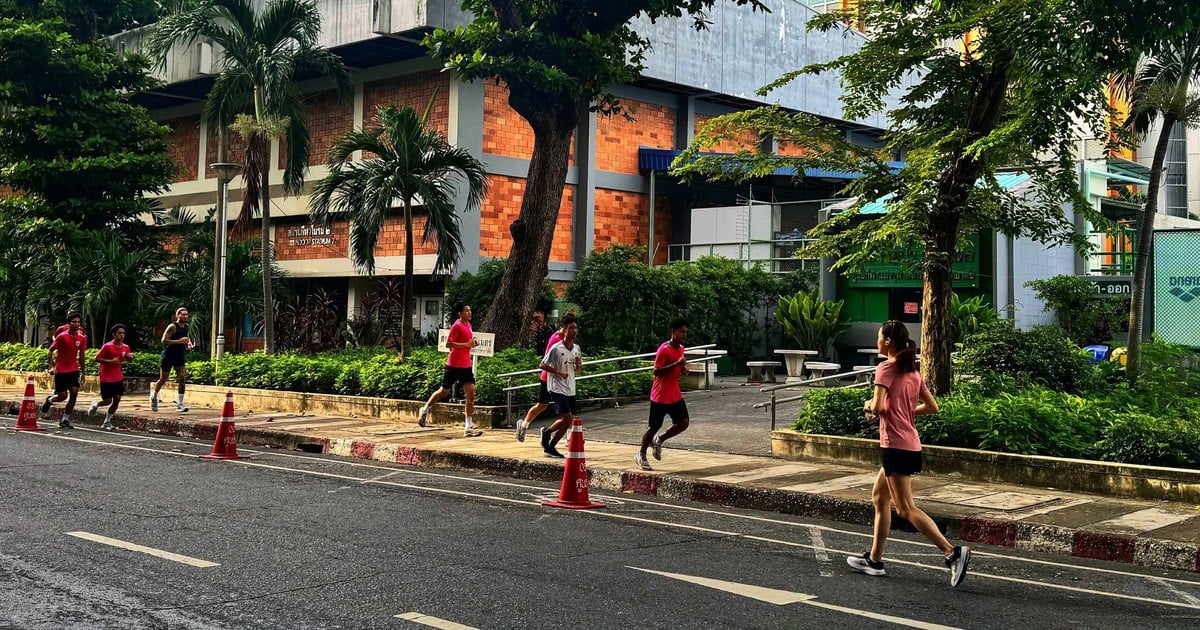
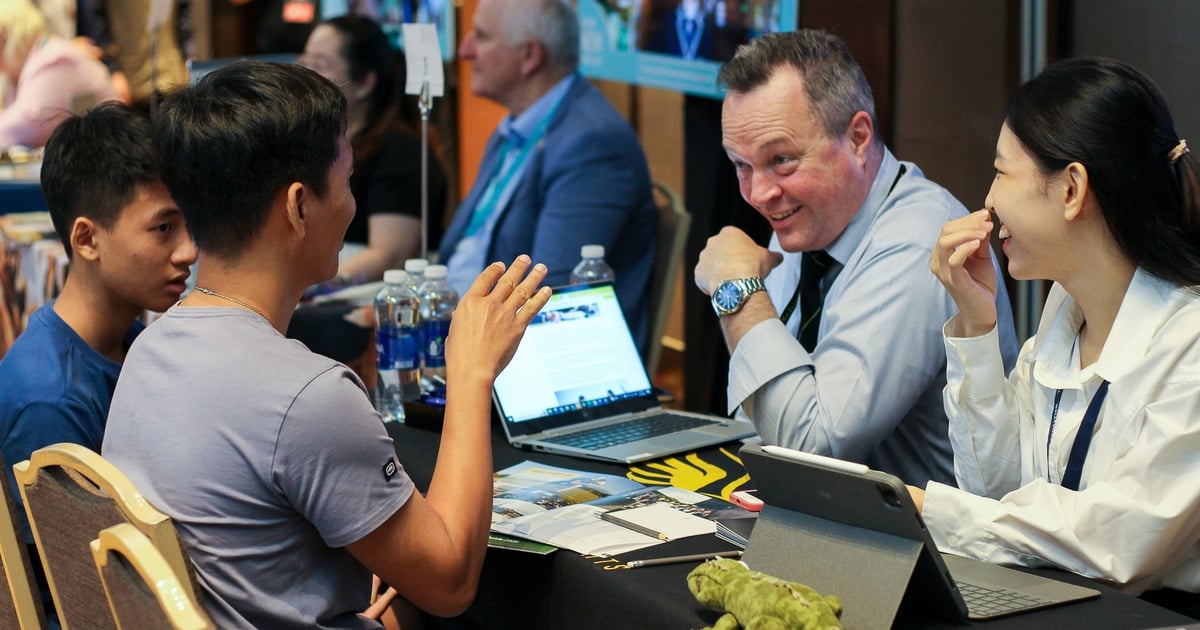




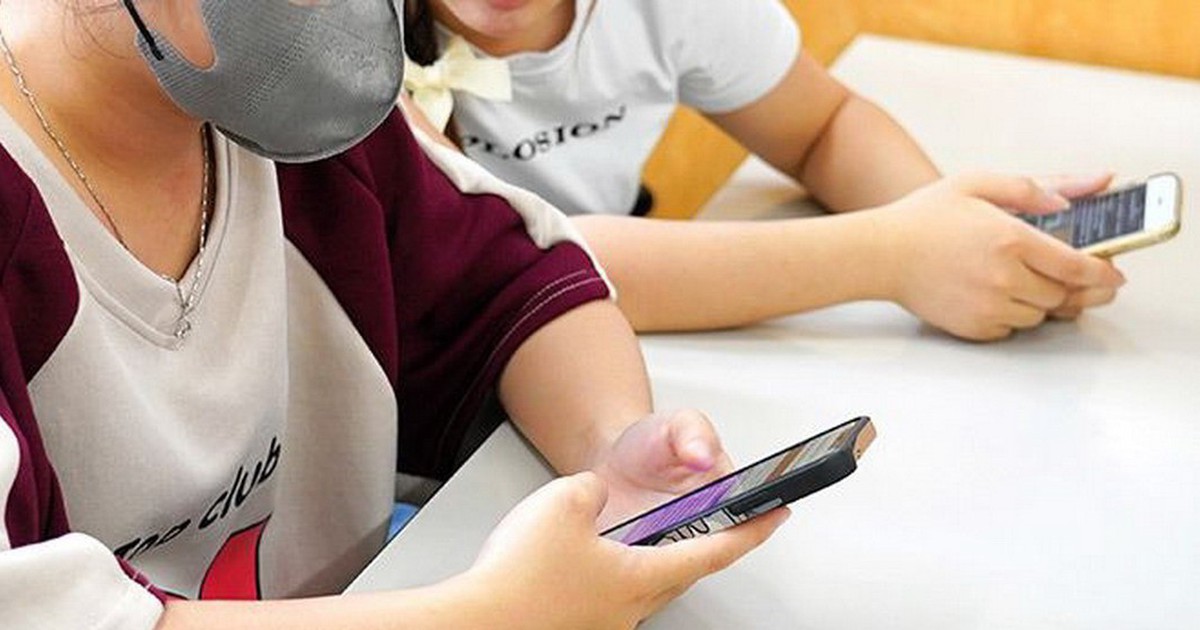
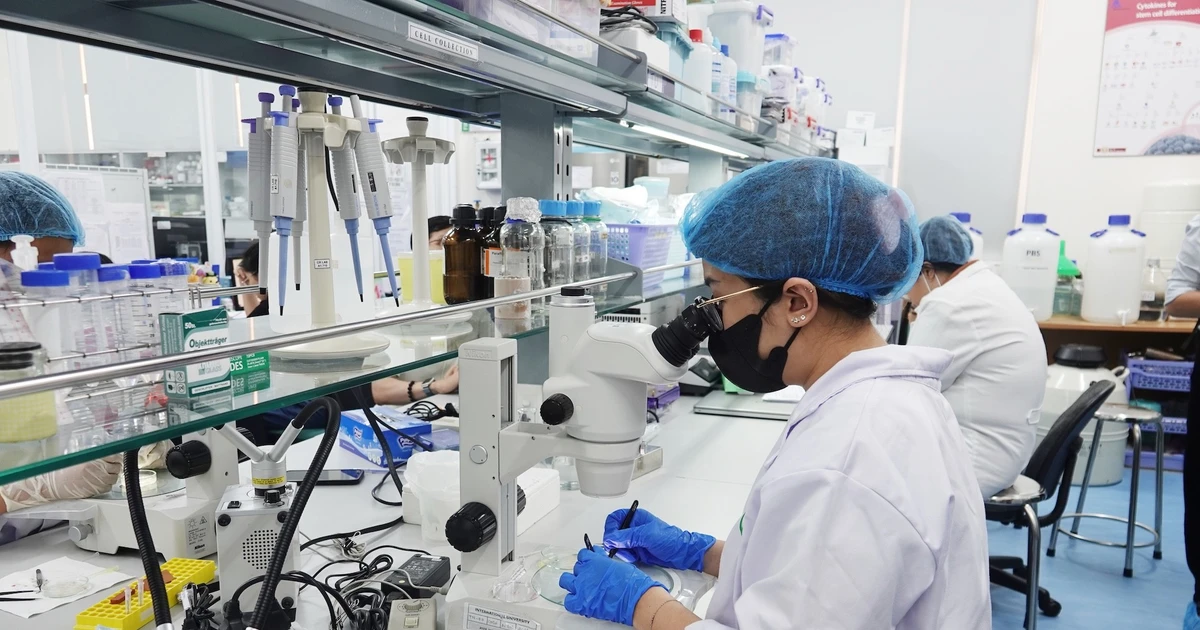


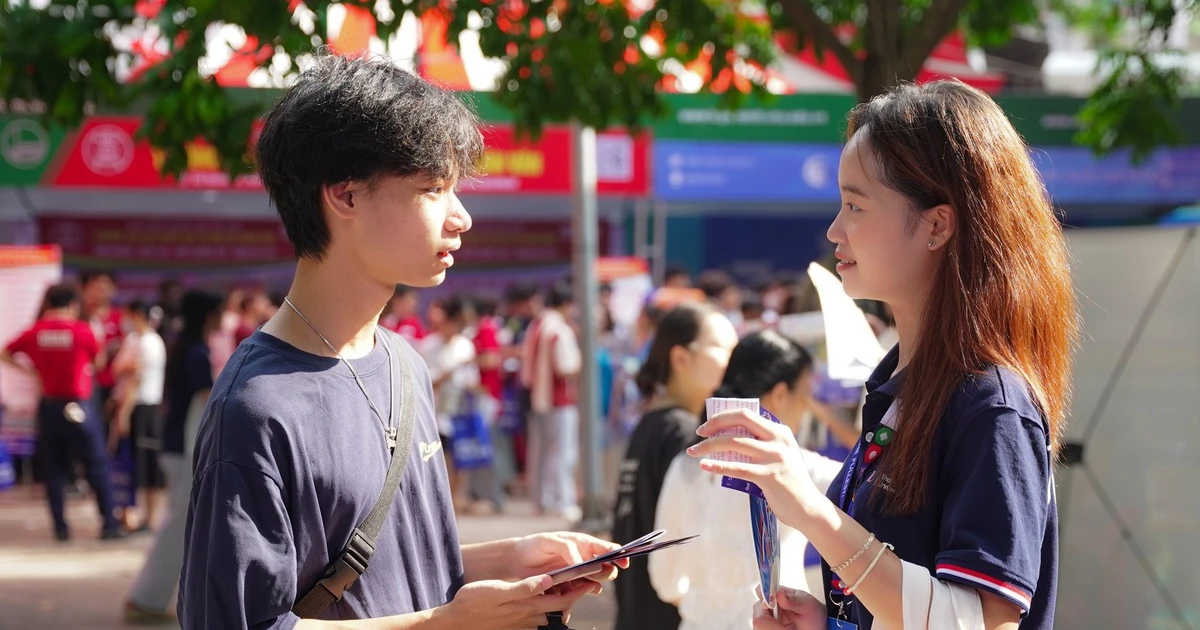
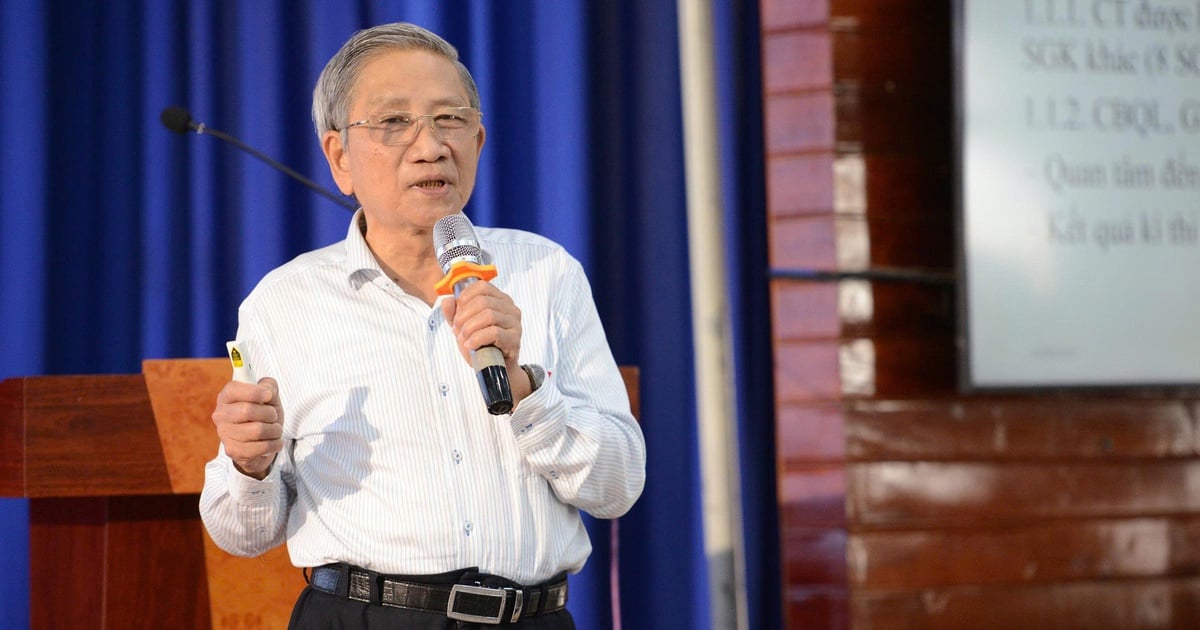









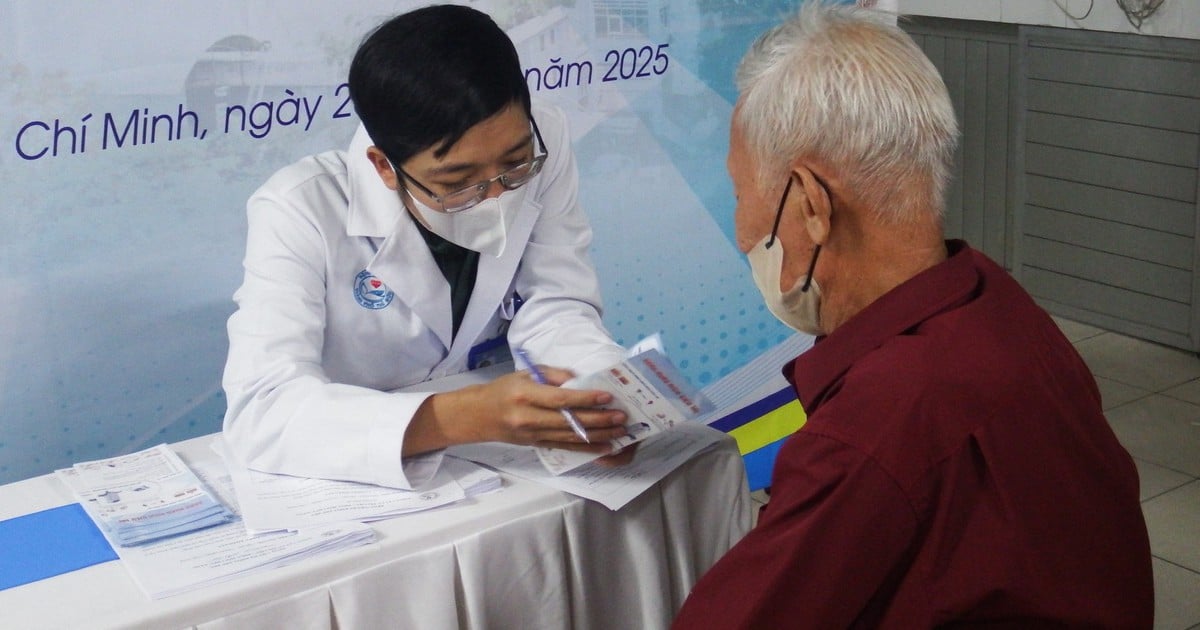








































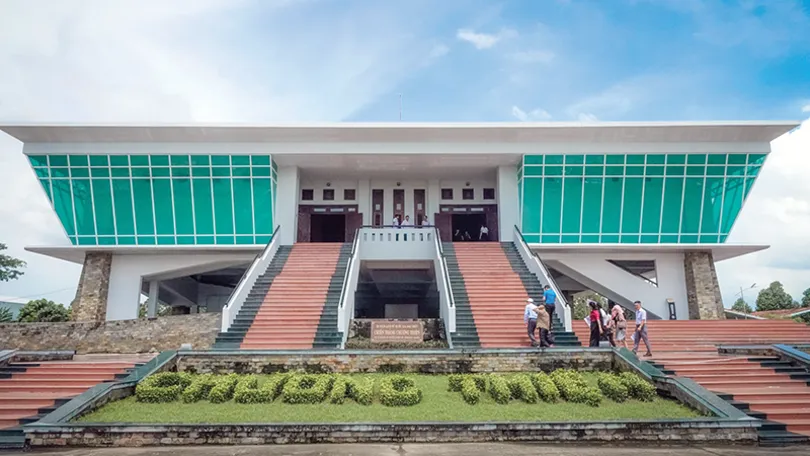



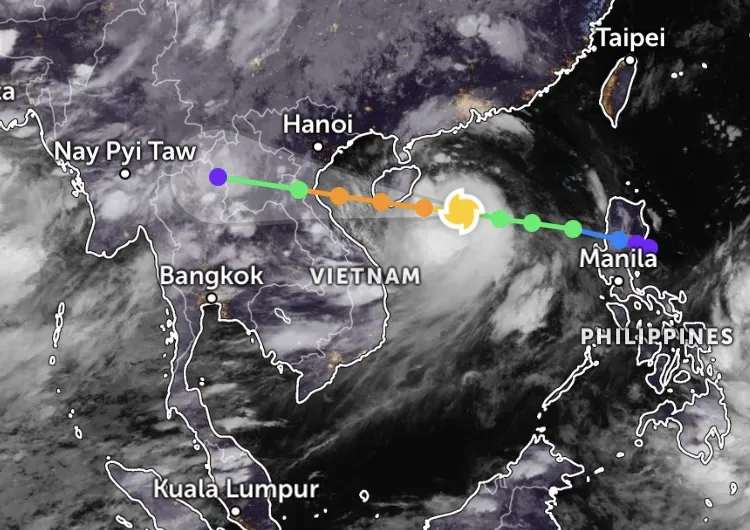




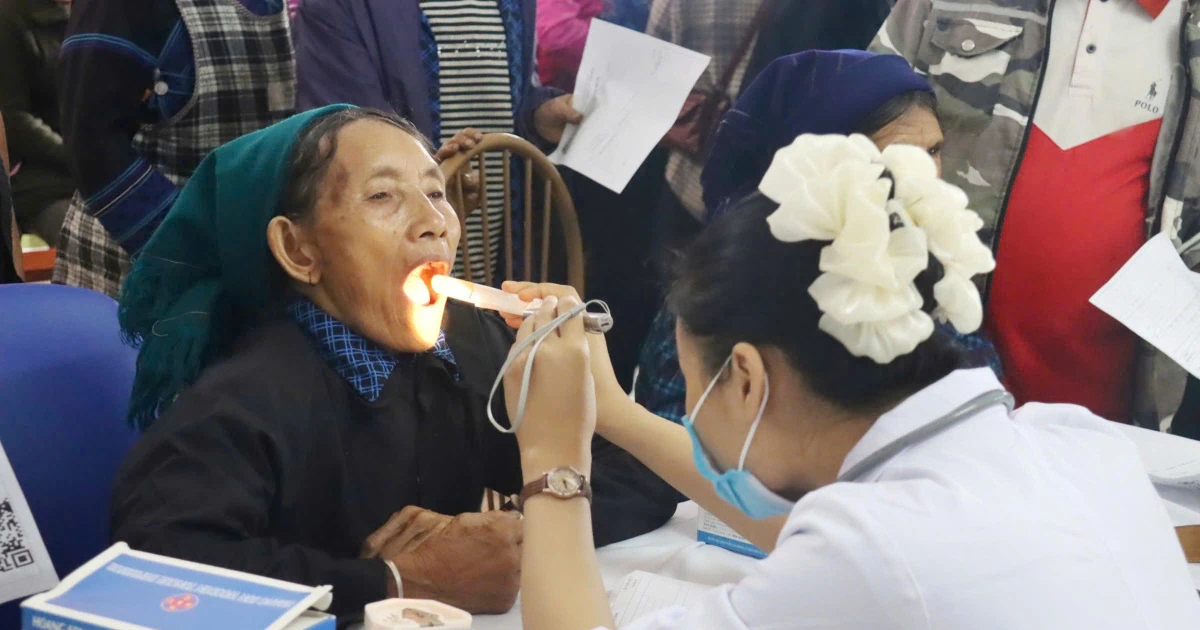















Comment (0)